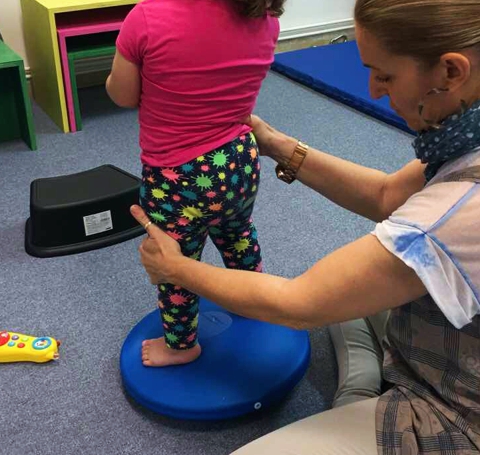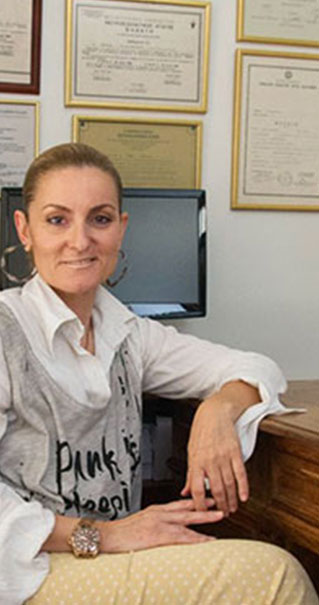Table of Contents
What are the characteristics that the ideal pediatric physiotherapist should have?
First of all, we must say that there are predominantly objective characteristics that the pediatric physiotherapist must have. But there are also subjective characteristics that we think may suit each of us. But is that so?
Let’s see:
Specialization
The first is to specialize in pediatric physiotherapy. And also, if it is a newborn or infant, to have the corresponding specialization in newborns and infants.
Why do you need specialization?
Children and especially newborns and infants develop daily and at a very fast pace. The specialized pediatric physiotherapist knows very well the normal and pathological development. He is an excellent connoisseur of what precedes whom and which function of which.
This way he can know and prepare for what should be prevented so that there is no deviation from the normal developmental process.
Not all physiotherapists specialize in children and much more in newborns and infants.
You always choose specialists as you do not go to an ENT for your tooth or a doctor or your child or baby.
Experience
The specialist therapist who knows a lot and has experience certainly knows a lot more about organizing your child’s motor and perceptual development.
This is especially true in the first infancy and infancy when experience will play a crucial role in prevention, guidance and organization in movement and function.
Experience allows you to respond to your own worries and anxieties that you may have as you do not know what follows.
To follow scientific developments
Developments in the medical community are ongoing.
Every now and then there are new data both in the organization of the intervention and in the way of the intervention itself.
The evolution of your therapist himself will have positive results and only in the way of intervention that he will choose.
If he is specialized in more than one method and is able to combine the way of intervention, how it will help the development course and what tools he will use to have the best and fastest result.
So, there must be continuing education.
Ability to collaborate
The pediatric physiotherapist should work directly with your doctor, pediatrician, pediatric neurologist or orthopedist as well as the occupational therapist, speech therapist or any other colleague who can monitor or work with the child.
Organizing the child’s motor and perceptual development is a team effort that requires the cooperation of many specialties many times. It is necessary to have cooperation between the different specialties for the best result.
To be able to solve the child’s problem every time
Many times the child is required to use aids. Is he aware of the new aids, the new way and the development in the various aids so that you can choose what is right for your child according to his own unique need?
No one is the same as anyone else and that is how your therapist and your child should be treated. Unique and always in the mood and with a smile.
Answer your questions
All parents have many questions about how your child’s condition will develop, what does what the doctor told you?
What does it mean to be found on magnetic or other tests?
What is the prognosis? Why does he need physical therapy?
How long should he do physical therapy?
Will make it;
Is not that right;
Your pediatric physiotherapist must have the knowledge to be able to answer all your questions and guide you in the right way to intervene and organize your daily life.
It should help you with your knowledge to understand your child’s needs and how you can in everyday life not be stressed by your child’s daily or age changes.
To set realistic goals and achieve them
The intervention program must have flow and continuity. To do this, the therapist must be able to set achievable and realistic goals.
The success of the treatment program depends on the knowledge and the way the treatment program is organized by your physiotherapist.
His scientific training and insight enable him to organize the treatment plan in order to achieve the goals of the child’s motor development.
When the goals are realistic and achievable for sure and the child is calmer and more functional, whether there is a pathological background or some simple deviations, he will develop according to his potential.
To be able to recognize the dominant problem
The organization of the therapeutic intervention depends almost exclusively on the perspicacity and the deep knowledge of the normal development and the scientific training of your therapist.
I say this because if the predominant problem of the moment is not identified in each session we can work with a child and the treatment may not work or the results may be very poor.
It’s one of the most important parts of the intervention for me and unfortunately my parents may not be aware of it. It often happens that they go through years of treatment and the child who may have had the potential was never used.
And it is not the fault of the parent or the therapist but it must be said that knowledge alone is not enough, you must be able to use it for the best result.
The treatment should be different in each session and each time
None of us is the same every time. We differ from day to day and at any time of the day.
The same goes for our children. Each time we find the dominant problem and focus on solving it so that its general motor development follows the most normal and functional way.
The intervention should never be identical to the previous time as a recipe or as a fitness exercise book. We are physiotherapists not gymnasts.
It is our principle to provide the best intervention in the best way.
At the end of each session the child should be better physically
I always tell my colleagues that it is very important that the child builds his functional behavior slowly. So each time in the session he achieves something more than the previous time. This is achieved with knowledge and method.
We are responsible for making this possible.
So in each session and each time the child must leave different and better kinetically than he came.
This is an inviolable principle for all of us.
The treatment involves play
The organization of motor and perceptual development from the beginning of the child’s life is enriched with experience through toys.
Physiotherapy intervention must follow normal development in all its aspects. The child develops skills and abilities, explores and learns and interacts with the environment and other people through play.
So, our therapy cannot be sterile through toys and motor experiences, especially in children who may need it more because of communication and perception deficits.
Let’s now look at some of the more subjective reasons for choosing the ideal physiotherapist… which may not be so subjective.
To give you guidance
To guide you about what may be bothering you in your child’s situation.
Knowledge and how you may need to handle his crying or reaction during the session is crucial to your collaboration.
Many times you are troubled by different elements of development such as swallowing or speech or perception. Other times everyday problems such as his insomnia, his teeth, his nerves or anything else that may be related to his multiple personality.
Your therapist is also your personal “friend”. The person you will be able to talk to and give you an opinion or guide or give you the solution.
To have understanding
Too many times it has happened to me that my parents are very anxious and have been overwhelmed by the new situation they are called to face.
Together with your therapist you will find ways to organize your thinking and how and why for your baby.
Your therapist should help you through a deep understanding of your own anxiety and any insecurities you may be expressing.
Have patience and sensitivity
When a child starts physiotherapy, he usually cannot adapt immediately to the changes that occur in his body due to the intervention.
A lot changes in your baby or toddler in terms of how he moves, the way he breathes and how he perceives the world around him.
The pediatrician must patiently and sensitively understand why and help him and show him how to adapt.
The help from your therapist is crucial and the one that will show you how to properly handle and deal with changes in the behavior of your baby or child.
To inspire confidence
Is your pediatric physiotherapist capable of making you feel confident that you can get along?
Too many times you will ask his scientific opinion about something that concerns you about the course of the child or he will have to make important decisions for the subsequent course of your child.
Do you have confidence in the correctness of the answer?
Is the decision he proposes, correct?
In each positive answer to the above questions, you build a relationship of trust and mutual appreciation.
Through this relationship of mutual coexistence in the life of the child, each with his own role, we give the child the solid foundation to work safely.
Once our parent trusts us, and the child is left with confidence in what we will do together.
To be a helper in the effort
The intervention is done by the pediatric physiotherapist not by the parent. The parent is simply the helper in this endeavor.
Our roles must never be reversed.
The parent must always be a parent and this quality can never be taken or changed through an effort to “help” the intervention.
He cannot and should not become a therapist. Otherwise, his role is lost and the balance between parent and child is disturbed. This never works for the benefit of the child.
Also a very important part of successful therapeutic intervention is the therapist-parent relationship.
The parent and the therapist are companions in the intervention process and not opposite each other.
The purpose is not to judge whether you are capable of exercising or whether you catch and handle your children properly.
Parents need to play with your children and during this game there should be some directions for handling and organizing the movement.
Our roles are different and therefore our responsibilities and obligations towards the child.
Knowing everyone’s place in the child’s life makes things simpler and the intervention a pleasant process.
It is important to remember and always know that we are co-responsible for what happens to the child. Every success or failure is a result of our cooperation.
Do not forget that together we raise your children. In part, they are our children and we are happy with their successes and we are sad with their “failures”.
We are part of their life and together we certainly achieve more than each of us alone.
So companions in all the important and insignificant.
More like friends-partners. At least that should ideally be the case.
Do you work with your child’s therapist when he or she sets goals for you?
When it guides you in everyday life?
When does it prevent some unpleasant situations by setting ways of handling?
Does it do all of the above?
We are all different you will tell me and what goes to me may not go to you but is it so?
The ideal pediatric physiotherapist must meet our conditions and be the best for us.
Do not rest easily.
For all of us who are parents, the most important thing in the world is our child.
Make sure they are in the best hands.

